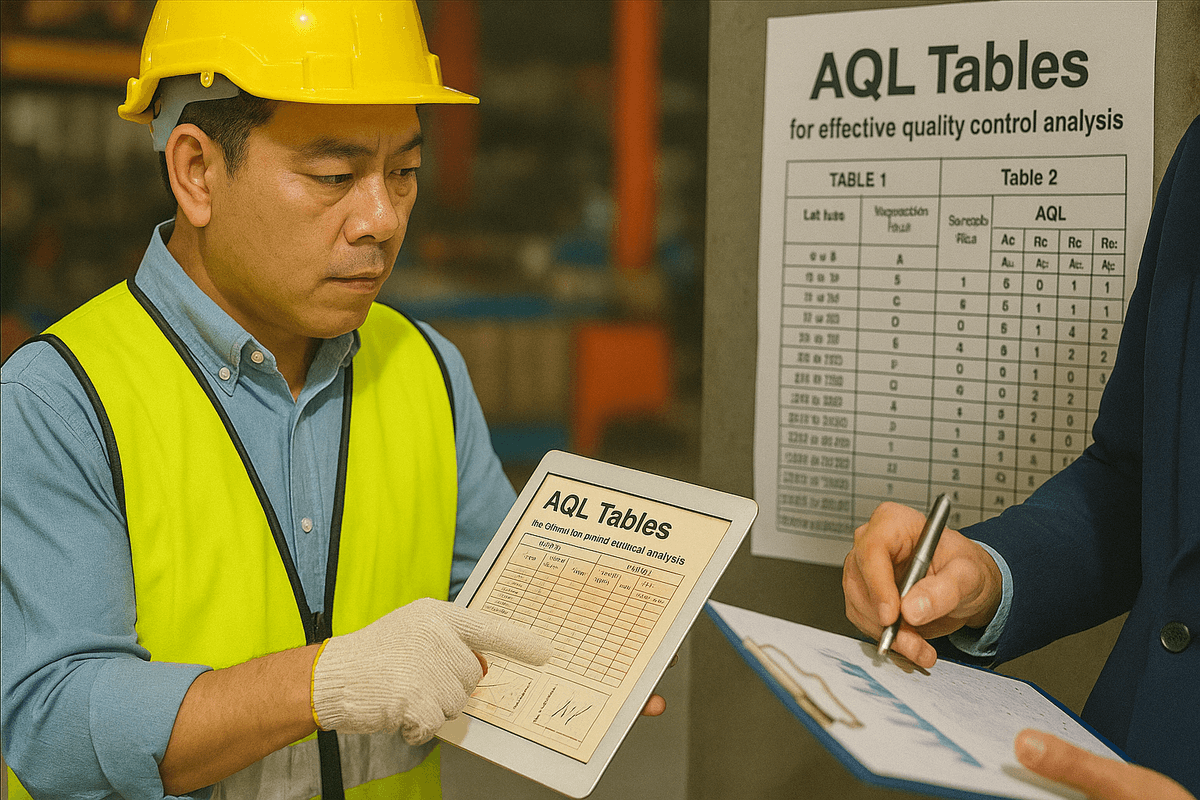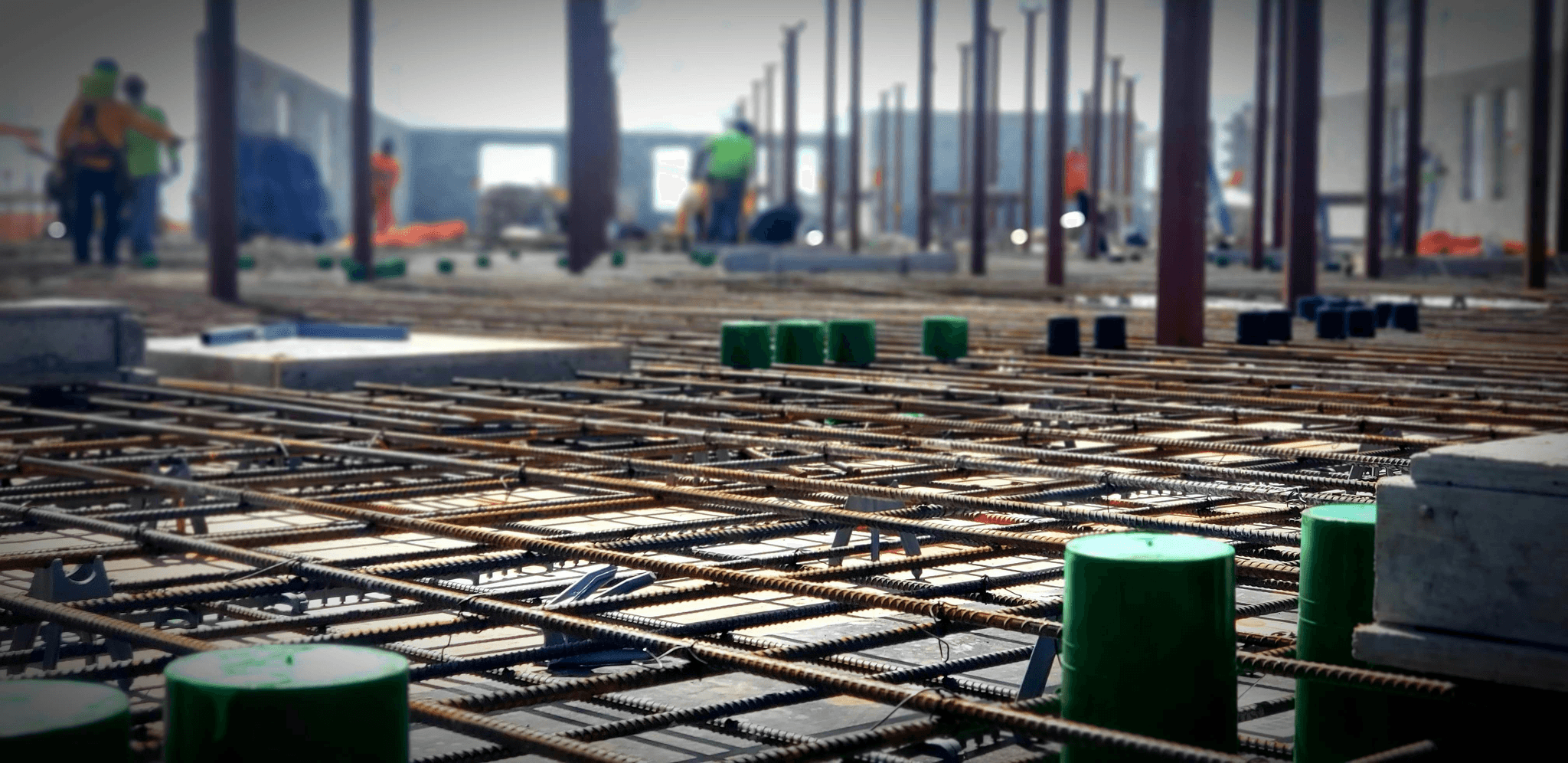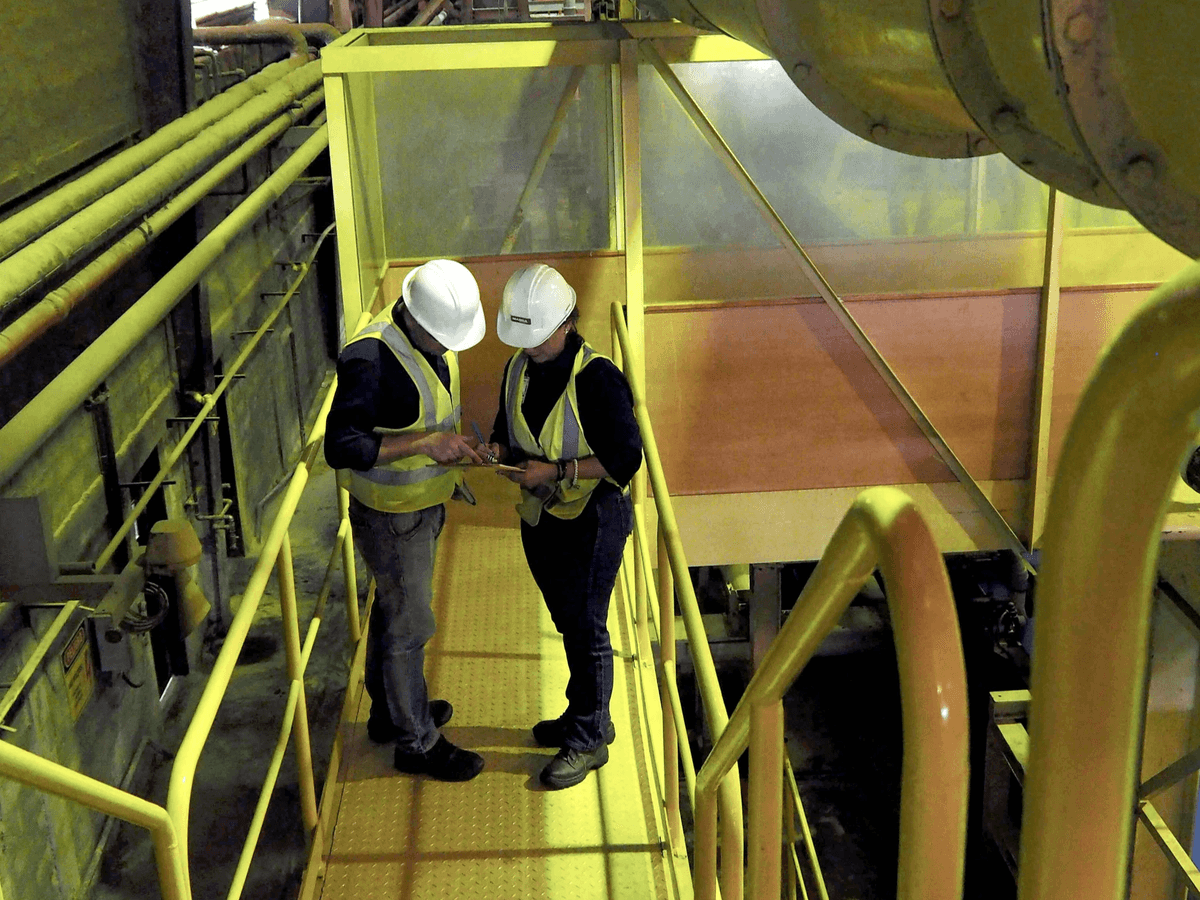Introduction
In the world of construction, ensuring that projects are completed to the highest standards is paramount. Quality control construction serves as a crucial pillar in this endeavor, providing a systematic approach to maintaining excellence throughout the building process. With the complexities involved in modern construction, understanding quality control and its relationship with quality assurance (QA) becomes essential for successful project management.
Understanding Quality Control in Construction
Quality control in construction involves the processes and procedures implemented to guarantee that work meets specified requirements and standards. It encompasses various activities such as inspections, testing, and documentation aimed at identifying defects early on before they escalate into costly problems. By prioritizing quality control for project management, stakeholders can ensure that projects are not only completed on time but also adhere to budget constraints.
The Role of Quality Assurance
While quality control focuses on identifying defects after they occur, QA takes a proactive stance by establishing processes that prevent issues from arising in the first place. This distinction is vital within QA and QC in construction; effective QA programs lay down guidelines and best practices that inform every phase of a project. Ultimately, a robust QA framework complements quality control efforts by fostering an environment where high standards become part of the organizational culture.
Why Quality Matters in Construction Projects
Quality matters immensely in construction projects due to its direct impact on safety, durability, and client satisfaction. Poor-quality work can lead to structural failures or safety hazards, which not only jeopardize lives but also incur significant financial losses through repairs or legal actions. By integrating effective quality control measures alongside comprehensive QA protocols, construction firms can enhance their reputation while ensuring projects meet or exceed client expectations.
Defining Quality Control and Quality Assurance

In the construction industry, understanding the nuances of quality control and quality assurance is paramount. These two concepts, while often used interchangeably, play distinct roles in ensuring that projects not only meet specifications but also achieve overall excellence. By clearly defining each term, we can appreciate how they contribute to successful project outcomes.
Quality Control in Construction Explained
Quality control in construction refers to the systematic processes that monitor and evaluate various aspects of a project to ensure compliance with established standards. This includes regular inspections, testing materials, and verifying workmanship throughout the construction phase. Effective quality control for project management helps identify defects early on, reducing the likelihood of costly rework or delays down the line.
The primary goal of quality control construction is to ensure that every element meets required specifications before moving forward. It acts as a safety net, catching potential issues before they escalate into larger problems that could jeopardize the entire project. In essence, it’s about maintaining high standards at every stage of construction.
The Essence of Quality Assurance
While quality control focuses on detecting defects after they occur, quality assurance (QA) takes a proactive approach by establishing processes designed to prevent those defects from happening in the first place. QA encompasses all planned and systematic activities implemented within a quality system so that quality requirements for a product or service will be fulfilled. In construction projects, this means setting up robust procedures for planning, executing, and monitoring tasks to ensure compliance with both regulatory standards and client expectations.
The essence of QA lies in its focus on continuous improvement through feedback loops and process evaluations. By fostering an environment where teams are encouraged to learn from past experiences and adapt accordingly, organizations can create a culture of excellence that enhances overall performance. This proactive stance ultimately leads to higher levels of customer satisfaction as projects consistently meet or exceed expectations.
Distinguishing Between QA and QC in Construction
Understanding the differences between QA and QC in construction is crucial for effective project management strategies. While both are essential components of a comprehensive quality management system, their functions differ significantly: QA is about process-oriented activities aimed at preventing issues; QC is product-oriented and involves inspection activities aimed at identifying defects after they occur.
To put it simply: think of QA as your safety net woven into your project's framework—ensuring everything is set up correctly from the beginning—while QC acts like your trusty inspector checking for any missteps along the way before you reach your final destination. Recognizing these distinctions allows project managers to tailor their strategies effectively; implementing targeted actions that enhance both aspects can lead to improved outcomes across all phases of construction.
In conclusion, mastering both quality control construction practices alongside comprehensive QA strategies creates an unbeatable combination for successful projects—leading us toward more efficient workflows and elevated standards within our industry.
The Importance of Quality Control for Project Management

In the realm of construction, quality control is not just a buzzword; it’s the backbone of successful project management. Implementing robust quality control measures ensures that projects meet design specifications, safety standards, and client expectations. By embracing quality control in construction, project managers can enhance efficiency and deliver superior results.
Benefits of Quality Control in Construction Projects
Quality control in construction offers a plethora of benefits that extend far beyond mere compliance with regulations. First and foremost, it enhances the overall quality of work, leading to improved durability and performance of structures. Furthermore, effective QA and QC in construction foster better communication among stakeholders, minimizing misunderstandings that can lead to costly mistakes.
Another significant advantage is increased customer satisfaction. When clients see their expectations met or exceeded due to stringent quality control practices, it builds trust and encourages repeat business or referrals. Ultimately, the integration of quality control for project management creates a culture where excellence is not just expected but achieved consistently.
How Quality Control Prevents Cost Overruns
Cost overruns are the bane of many construction projects; however, implementing rigorous quality control can serve as an effective deterrent against this common pitfall. By identifying issues early through systematic inspections and testing procedures, teams can address problems before they escalate into costly reworks or delays. This proactive approach saves both time and resources while keeping projects on budget.
Moreover, when quality control processes are embedded into every phase of a project—from planning to execution—there’s less likelihood of errors that necessitate expensive corrections later on. The financial implications are clear: investing in thorough QA practices pays off by reducing waste and optimizing resource allocation throughout the project's lifecycle.
Real-Life Examples of Quality Control Success
Numerous real-life examples showcase how effective quality control has transformed construction projects from potential disasters into resounding successes. For instance, a high-rise building project faced significant structural concerns during its early phases due to inadequate material testing; however, once rigorous quality control measures were implemented—including third-party inspections—the issues were resolved without major delays or budget overruns.
Another notable case involved a large infrastructure initiative where consistent application of QA protocols led to enhanced safety outcomes and minimized accidents on site—an accomplishment that drew accolades from industry regulators as well as community members alike. These examples highlight that prioritizing quality control not only leads to successful project completions but also cultivates an environment where safety and sustainability thrive.
Implementing Quality Assurance in Construction Projects

Quality assurance (QA) is the backbone of any successful construction project, ensuring that the final product meets specified standards and client expectations. Implementing a robust QA program involves a series of strategic steps that help streamline processes and enhance quality control in construction. By prioritizing QA, construction managers can significantly reduce errors, improve efficiency, and maintain high-quality standards throughout the project lifecycle.
Steps to Establishing a QA Program
The first step in establishing a QA program is to define clear quality objectives aligned with project goals. This includes identifying key performance indicators (KPIs) that will measure success and ensure compliance with both industry standards and client specifications. Next, it’s essential to develop comprehensive documentation detailing procedures for quality control, including inspection protocols and reporting methods to facilitate effective communication among all stakeholders involved in the project.
Once the framework is set, training team members on these procedures becomes crucial; everyone must understand their roles within the QA framework for it to function effectively. Regular audits should also be conducted to assess compliance with established quality control processes, allowing for continuous improvement based on feedback and findings. By following these structured steps, construction firms can create a solid foundation for effective quality assurance that complements their overall approach to quality control.
The Role of Training and Certification
Training plays an integral role in implementing effective QA programs within construction projects. When team members are well-trained in QA practices, they are better equipped to identify potential issues before they escalate into costly problems—this proactive approach is vital for maintaining high-quality standards throughout the project lifecycle. Moreover, certification programs not only enhance individual skills but also boost overall team competency in quality management.
Investing in training ensures that all personnel understand the nuances of both QA and QC in construction; this knowledge fosters a culture of accountability where everyone takes ownership of their contributions toward achieving project goals. Furthermore, certified professionals bring credibility that can reassure clients about the commitment to maintaining exceptional quality control for project management purposes. Ultimately, ongoing training initiatives pave the way for continuous improvement while keeping teams updated on industry best practices.
Tools and Technologies that Aid QA
In today’s digital age, leveraging technology can significantly enhance quality assurance efforts within construction projects. Various tools such as mobile applications for real-time inspections or software platforms designed specifically for managing QA processes enable teams to streamline workflows while ensuring accurate documentation of compliance with established standards—this integration makes tracking progress much more efficient than traditional methods alone!
Additionally, technologies like Building Information Modeling (BIM) allow stakeholders to visualize potential issues before they arise on-site; this foresight is invaluable when it comes to preventing costly rework later down the line due to lapses in quality control construction practices. Moreover, employing data analytics tools can provide insights into trends related to defects or inefficiencies over time—helping organizations refine their approaches continuously based on empirical evidence rather than guesswork.
By embracing innovative solutions tailored towards enhancing both qa quality initiatives as well as overall performance metrics related specifically back towards effective implementation strategies around QC measures—construction firms position themselves ahead of competitors who may still rely solely upon outdated methodologies!
Quality Control Best Practices in the Industry
In the ever-evolving landscape of construction, implementing effective quality control practices is not just a luxury—it's a necessity. Quality control for project management ensures that projects are completed on time, within budget, and to the highest standards. By adhering to best practices in quality control construction, firms can significantly enhance their operational efficiency and client satisfaction.
Techniques for Effective Quality Control
Effective quality control techniques in construction are like a well-tuned orchestra; every element must work harmoniously together. One popular method is the use of checklists throughout various phases of construction to ensure that every task meets established standards before moving forward. Regular inspections and audits also play a crucial role, allowing teams to catch potential issues early and implement corrective actions—this proactive approach can save time and money down the line.
Another technique involves employing statistical process control (SPC) methods to monitor processes in real-time. By analyzing data collected during construction, project managers can identify trends or deviations from expected performance levels quickly. This data-driven approach complements QA quality initiatives by providing tangible evidence of compliance with quality standards and making it easier to adjust processes as needed.
Finally, fostering a culture of continuous improvement within teams encourages workers at all levels to take ownership of quality control efforts. When employees understand their role in maintaining high-quality standards, it leads to increased accountability and better outcomes overall. Ultimately, these techniques not only enhance quality but also contribute positively to team morale and project success.
Case Studies in Quality Control Implementation
Looking at real-life examples can illuminate how effective quality control can transform projects from potential pitfalls into shining successes. One notable case involved a large commercial building project where initial phases suffered from numerous defects due to inadequate oversight—a classic case where QA and QC in construction were lacking. However, after implementing rigorous quality control measures such as enhanced training programs for workers and regular third-party inspections, the project was able to turn around its trajectory dramatically.
In another instance involving infrastructure development, a city faced significant delays due to repeated errors in material specifications that led to costly rework. By integrating comprehensive training sessions focused on both QA principles and effective communication among teams, they managed not only to meet deadlines but also improve overall stakeholder confidence in future projects. This transformation underscores how investing time into establishing solid quality control frameworks pays off tremendously.
These case studies serve as powerful reminders that when organizations prioritize robust quality management systems—including both QA quality initiatives and hands-on QC practices—they position themselves for success even amidst challenges.
Leveraging Third-Party Inspections with China Inspection Pro
When it comes down to ensuring top-notch standards in construction projects, sometimes an external perspective makes all the difference—and that's where third-party inspections come into play! Utilizing services like China Inspection Pro allows companies access to experienced professionals who specialize exclusively in assessing various aspects of construction projects while ensuring compliance with local regulations and international standards alike.
These independent inspectors provide an unbiased review that can help identify hidden problems or inconsistencies that internal teams might overlook due to familiarity bias or resource constraints—essentially acting as an extra set of eyes on-site! Additionally, leveraging third-party inspections enhances credibility with clients by demonstrating commitment towards transparency and excellence through rigorous adherence to established protocols related specifically towards quality control for project management.
Incorporating these services into your overall strategy not only strengthens your QC framework but also positions your organization as one committed firmly towards delivering exceptional results consistently across all projects undertaken—a reputation worth its weight in gold!
The Future of Quality Management in Construction

The construction industry is on the brink of a transformation, driven by innovations that enhance quality control and assurance. As projects become more complex, the need for robust QA and QC in construction has never been more critical. This future not only promises improved outcomes but also emphasizes sustainable practices that align with global standards.
Innovations Driving Quality Control Forward
Innovations in technology are redefining quality control in construction, making processes more efficient and effective. For instance, the integration of drones for site inspections allows for real-time monitoring, ensuring that any deviations from quality standards are caught early on. Additionally, Building Information Modeling (BIM) provides a detailed digital representation of physical and functional characteristics, which enhances collaboration among stakeholders and boosts overall quality control for project management.
Moreover, the use of advanced materials such as self-healing concrete is revolutionizing how we think about durability and maintenance in construction projects. These innovations not only improve the structural integrity but also reduce long-term costs associated with repairs—a crucial factor when considering quality assurance programs. As these technologies continue to evolve, they promise to elevate the standards of quality control across the industry.
Sustainable Practices in Quality Assurance
Sustainable practices are becoming integral to QA quality initiatives within construction projects. By focusing on eco-friendly materials and energy-efficient designs, companies can achieve compliance with environmental regulations while simultaneously enhancing their reputation for quality assurance. This shift toward sustainability not only meets client expectations but also aligns with global efforts to combat climate change.
Furthermore, implementing waste reduction techniques during construction phases contributes significantly to overall project efficiency—an essential aspect of both QA and QC in construction management. Emphasizing recycling materials or reusing components can lead to substantial cost savings while maintaining high-quality standards throughout a project's lifecycle. Ultimately, integrating sustainability into quality assurance practices ensures that future generations inherit safer environments built on solid foundations.
The Impact of Technology on QA and QC
Technology's impact on QA and QC cannot be overstated; it’s reshaping how teams approach their work at every level of construction management. From cloud-based project management tools that facilitate seamless communication among team members to artificial intelligence algorithms predicting potential risks before they escalate—technology is a game-changer for maintaining high-quality standards.
Moreover, mobile applications enable field workers to report issues instantly or confirm compliance with safety protocols directly from their devices—streamlining communication between onsite crews and project managers alike. This real-time feedback loop enhances both quality control for project management as well as overall productivity by allowing teams to respond swiftly to challenges as they arise.
In conclusion, embracing these technological advancements will be crucial for organizations aiming to stay competitive while ensuring exceptional levels of QA and QC in construction projects moving forward.
Conclusion
In the world of construction, quality control and assurance are not just buzzwords—they're the bedrock of successful projects. Understanding the nuances of quality control construction and the vital role that QA quality plays can make or break a project. By weaving these principles into the fabric of project management, stakeholders can ensure that their endeavors not only meet but exceed industry standards.
Key Takeaways on Quality Control and Assurance
Quality control for project management is essential for maintaining high standards throughout the construction process. Effective quality control involves systematic inspections and testing to ensure compliance with specifications, while QA focuses on preventing defects before they occur. Together, these components create a robust framework that enhances overall project success, reducing risks and fostering trust among clients.
The Interconnection of QA and QC
The relationship between QA and QC in construction is like a well-oiled machine; each part relies on the other to function efficiently. Quality assurance sets the stage by establishing processes designed to prevent issues from arising, while quality control acts as a safety net, catching any problems that slip through. By recognizing this interconnection, teams can implement strategies that enhance both aspects—leading to superior outcomes in every project.
Elevating Standards in Construction Quality Management
As we look towards the future of construction, elevating standards in quality management is paramount for sustainable growth. Innovations in technology are paving new pathways for effective quality control construction practices, making it easier than ever to monitor progress and compliance in real-time. Embracing these advancements will not only improve efficiency but also inspire a culture of excellence where every stakeholder is committed to delivering top-notch results.
